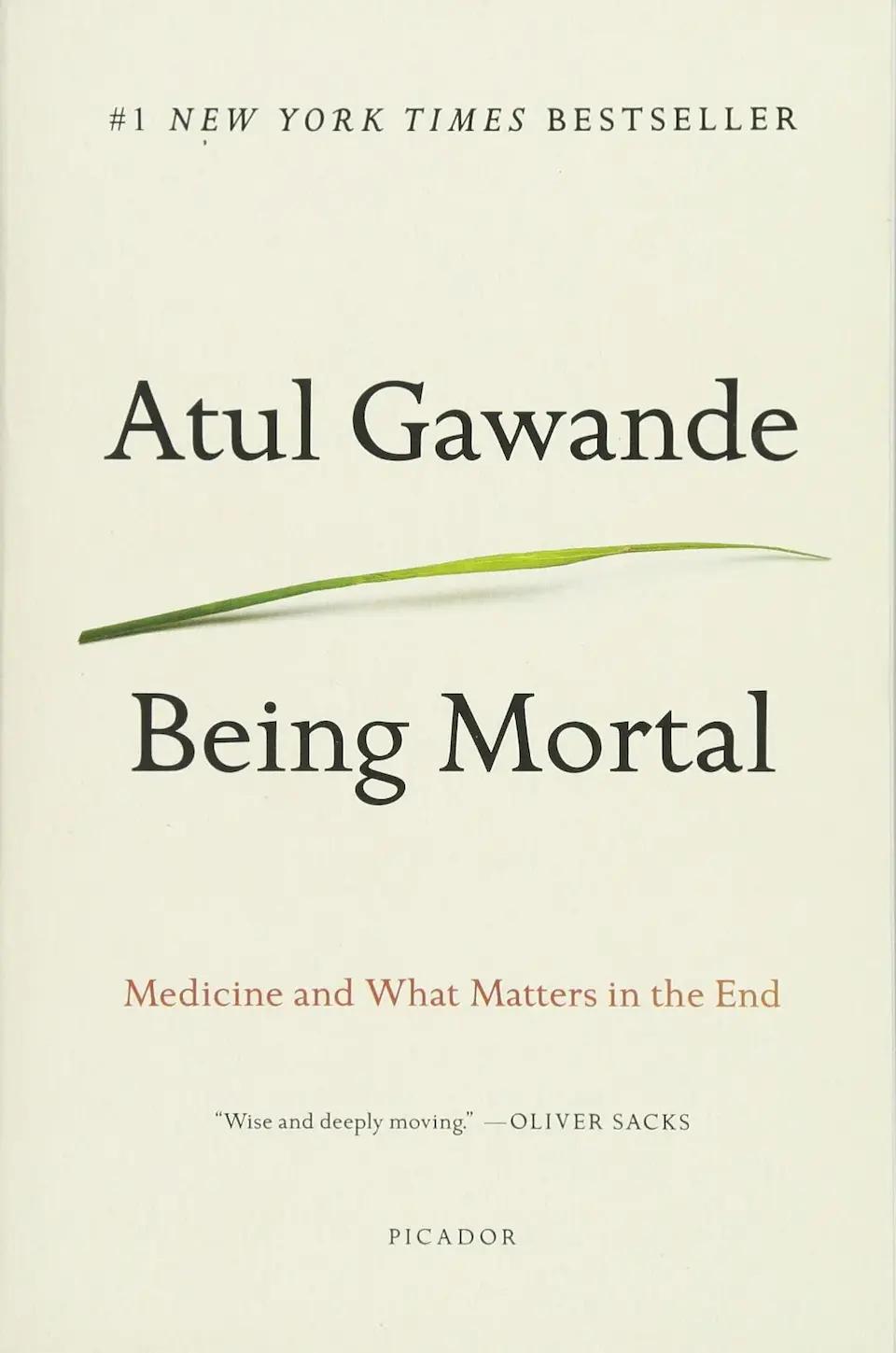Being Mortal
by Atul Gawande
Added:
Oct 7, 2021
Book Description
In Being Mortal, bestselling author Atul Gawande tackles the hardest challenge of his profession: how medicine can not only improve life but also the process of its ending
Medicine has triumphed in modern times, transforming birth, injury, and infectious disease from harrowing to manageable. But in the inevitable condition of aging and death, the goals of medicine seem too frequently to run counter to the interest of the human spirit. Nursing homes, preoccupied with safety, pin patients into railed beds and wheelchairs. Hospitals isolate the dying, checking for vital signs long after the goals of cure have become moot. Doctors, committed to extending life, continue to carry out devastating procedures that in the end extend suffering.
Gawande, a practicing surgeon, addresses his profession’s ultimate limitation, arguing that quality of life is the desired goal for patients and families. Gawande offers examples of freer, more socially fulfilling models for assisting the infirm and dependent elderly, and he explores the varieties of hospice care to demonstrate that a person’s last weeks or months may be rich and dignified.
Full of eye-opening research and riveting storytelling, Being Mortal asserts that medicine can comfort and enhance our experience even to the end, providing not only a good life but also a good end.
Notes & Highlights
2. Things Fall Apart
By the age of sixty, people in an industrialized country like the United States have lost, on average, a third of their teeth. After eighty-five, almost 40 percent have no teeth at all.
In 1950, children under the age of five were 11 percent of the US population, adults aged forty-five to forty-nine were 6 percent, and those over eighty were 1 percent. Today, we have as many fifty-year-olds as five-year-olds. In thirty years, there will be as many people over eighty as there are under five
4. Assistance
But with the concept of assisted living, Keren Brown Wilson had managed to embed that vital help in a home.
The company made her and her husband wealthy, and with their money they started the Jessie F. Richardson Foundation, named after her mother, in order to continue the work of transforming care for the elderly.
5. A Better Life
That was the doing of Bill Thomas. After launching the Eden Alternative, he had grown restless. He was by temperament a serial entrepreneur, though without the money. He and his wife, Jude, set up a not-for-profit organization that has since taught the Eden principles to people from hundreds of nursing homes. They then became cofounders of the Pioneer Network, a kind of club for the growing number of people committed to the reinvention of elder care. It does not endorse any particular model. It simply advocates for changes that can transform our medically dominated culture of care for the elderly.
…the foundation launched the National Green House Replication Initiative, which supported the construction of more than 150 Green Houses in twenty-five states…
7. Hard Conversations
We want information and control, but we also want guidance. The Emanuels described a third type of doctor-patient relationship, which they called “interpretive.” Here the doctor’s role is to help patients determine what they want. Interpretive doctors ask, “What is most important to you? What are your worries?” Then, when they know your answers, they tell you about the red pill and the blue pill and which one would most help you achieve your priorities.
“I’m worried,” I said. I recalled the list of questions Susan Block, the palliative medicine expert, had said mattered most and posed them to my father one by one. I asked him what his understanding was of what was happening to him. He understood what I understood. He was becoming paralyzed, he said. What were his fears if that should happen, I asked? I asked him what trade-offs he was willing to make and not willing to make to try to stop what was happening to him What were his goals if his condition worsened, I asked?
8. Courage
So I stepped back and asked the questions I’d asked my father: What were her biggest fears and concerns? What goals were most important to her? What trade-offs was she willing to make, and what ones was she not?
Get a copy
